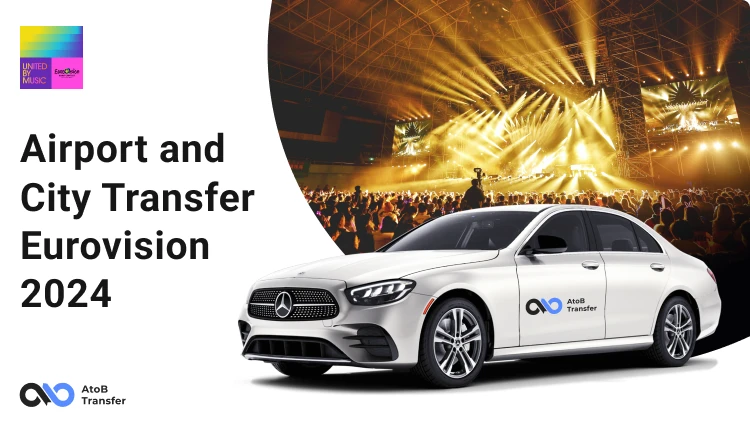Introduction
Almost there! Eurovision 2024 is coming up this year in Malmo, Sweden. A total of 37 countries are planned to participate. This is the seventh time Sweden has hosted it and third time for Malmo to be the host city. Sweden is tied with Ireland in having the most victories over the years, with both nations having won seven times. What makes this year special from previous ones is its aim to be a certified “Sustainable Event”. It does so by recycling glitter, ensuring that 70% of items used in the event are either borrowed, second-hand or rented and making sure all food served at this occasion is vegetarian to guarantee low ecological impact.
Transportation for Eurovision 2024 is also very important. In a green city such as Malmo, the transport errs towards sustainability, and electrically-powered vehicles are commonly used by both locals and guests. We plan to assemble a complete summary of the event in this article, listing out the countries involved in each semi-final along with their time slots and how you can reach Malmo Arena where the semi finals and grand final will occur. But before we proceed with the plan, we also want to talk about the history of this contest, how it has affected European culture throughout time and what is happening now.

History of the Eurovision Song Contest
Having been held every year since 1956, except for 2020, Eurovision is one of the world’s longest-running music competitions and television programmes. The country that hosts the event is decided after winning the previous year’s final, with Loreen coming in first at last year’s event with the song “Tattoo”. In recent decades, each hosting country also selects a unique theme for the event, and adapts the standard logo of the competition to reflect this.
The start of the Eurovision Song Contest occurred in 1956, as a result of the post-war situation, with the goal to create bonds amongst European countries by organising a friendly music competition. At first, it was not such a grand ordeal, but slowly over time Eurovision has become a part of culture, and now lots of people worldwide tune-in every year. Each country that takes part puts forward one original song, which gets performed live on stage by their selected artist or group. A complicated voting method, which mixes the results from national juries along with public televoting, is used to decide who wins. Eurovision has influenced contemporary music and culture in Europe greatly. It also helped start the careers of stars such as ABBA and Celine Dion. Also, its showy visuals, diverse music types and kitschy appeal have turned it into a favourite event for LGBTQ+ groups with committed fans from these and other energetic subcultures.
___
Now that we know what Eurovision is, let’s take a look at how this event will look like, with the current fixtures for each semi-final.
| year | Country making its debut entry |
year | Country making its debut entry |
year | Country making its debut entry |
|---|---|---|---|---|---|
| 1956 | 1971 | 1998 | Macedonia |
||
| 1973 | 2000 | ||||
| 1974 | 2003 | ||||
| 1975 | 2004 | ||||
| 1980 | |||||
| 1981 | |||||
| 1957 | 1986 | Montenegro |
|||
| 1993 | Herzegovina |
2005 | |||
| 1958 | 2006 | ||||
| 1959 | 1994 | 2007 | |||
| 1960 | |||||
| 1961 | |||||
| 2008 | |||||
| 1964 | |||||
| 1965 | 2015 |
Eurovision 2024: Semi-Final 1
Tuesday, May 7th at 21:00 (CEST) is time, and Malmo Arena is the place. This year’s Eurovision will kick-off with 15 countries showcasing their songs, with voting choosing which 10 countries will proceed to the final.
Cyprus
Song: “Liar”
Artist: Silia Kapsis
Cyprus returns again this year with another Australian-born artist, with the song “Liar”. It is in the standard format of a dance-pop song, with lively dancing.
Serbia
Song: “Ramonda”
Artist: Teya Dora
Written by the singer herself, the song is sung in her native language of Serbian, with a slow-paced rhythm and standard Eurovision singing-style and choreography.
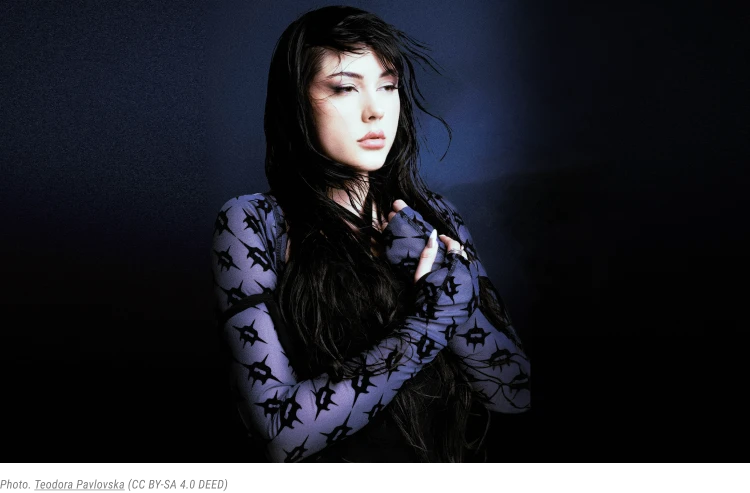
Lithuania
Song: “Luktelk”
Artist: Silvester Belt
Described as a “pop” song, it follows the structure and electronic format of numerous previous entries in the contest. It is described by the singer themselves as “being stuck in a matrix loop”.
Ireland
Song: “Doomsday Blue”
Artist: Bambie Thug
An interesting entry, combining a colourful verse section, with a chaotic chorus. The artist also has an alternative stage presence and appearance.
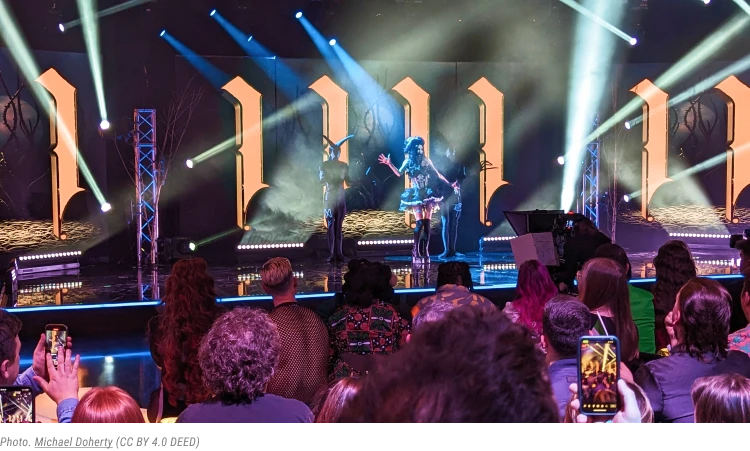
Ukraine
Song: “Teresa & Maria”
Artist: Alyona Alyona and Jerry Heil
A duo represents Ukraine this year, with a song that combines a melodious section with a rap-style section. The execution is rather plain, feeling like a rehash of previous entries, yet this time in Ukrainian.
Poland
Song: “The Tower”
Artist: Luna
An upbeat number featuring a soaring chorus, yet a standard Eurovision-esque dance performance.
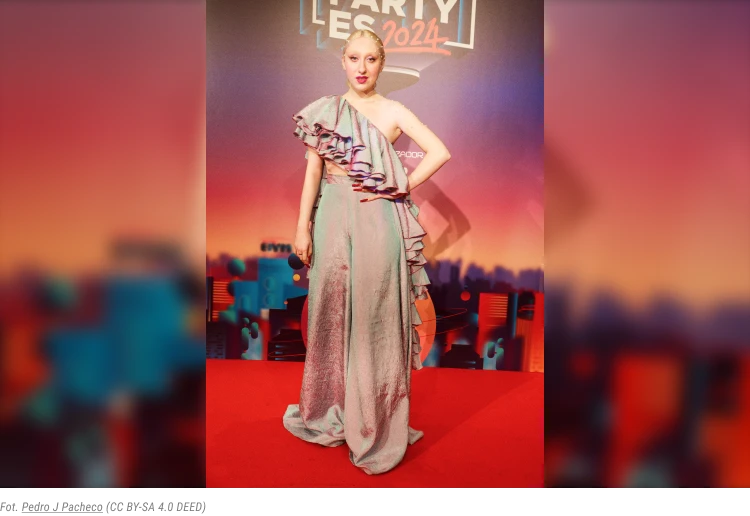
Croatia
Song: “Rim Tim Tagi Dim”
Artist: Baby Lasagna
A combination of what sounds like Croatian folk music, with an almost heavy-metal rhythmic chugging in the verse section. The stage performance also seems to incorporate an authentic glimpse into rural life in the country.
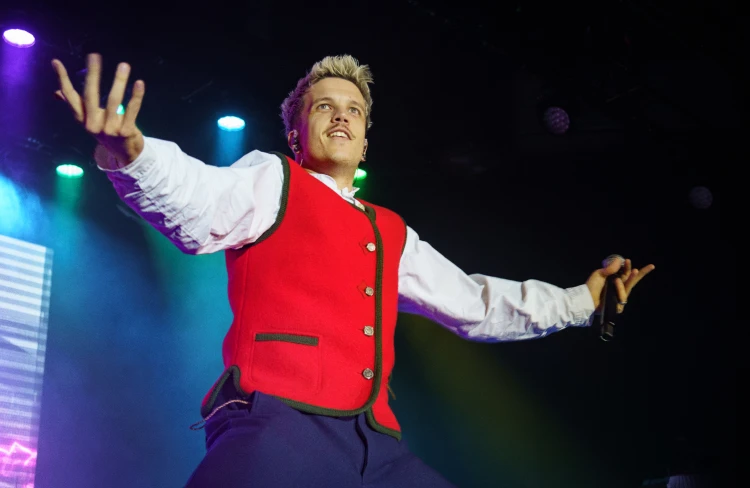
Fot. Pedro J Pacheco (CC BY-SA 4.0 DEED)
Iceland
Song: “Scared of Heights”
Artist: Hera Björk
Feeling similar to an entry from the 1990s to early 2000s, this entry follows the format of single singer with backup dancers, and a generic Europop backing track.
Slovenia
Song: “Veronika”
Artist: Raiven
An entry that is perhaps trying to capitalise on the win of last year’s entry, this song is an interesting blend of pop rhythms with a darker music video.
Finland
Song: “No Rules!”
Artist: Windows95man
One of the more peculiar entries in the competition this year, the artist combines a standard Eurodance backing track with peculiar costume selections and a questionable falsetto.
Moldova
Song: “In the Middle”
Artist: Natalia Barbu
A song that feels like it has been done countless times before, features five “identical” singers, with an almost Japanese-sounding backing track and violin performances.
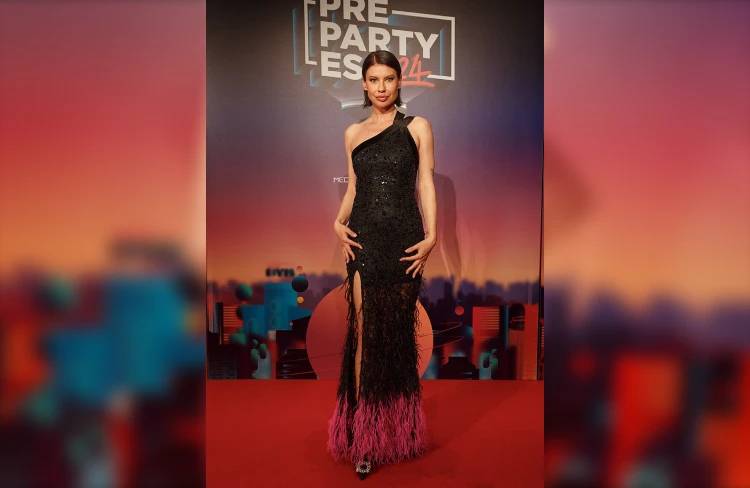
Fot. Pedro J Pacheco (CC BY-SA 4.0 DEED)
Azerbaijan
Song: “Özünlə apar”
Artist: Fahree feat. Ilkin Dovlatov
Azerbaijan’s song is an ethereal composition with surprisingly good vocals from the singer. The stage performance seems to be lacking, though.
Australia
Song: “One Milkali (One Blood)”
Artist: Electric Fields
An attempt to create an “Anthem”-like song, with a repetitive hook and visuals which are sure to represent the Song Contest.
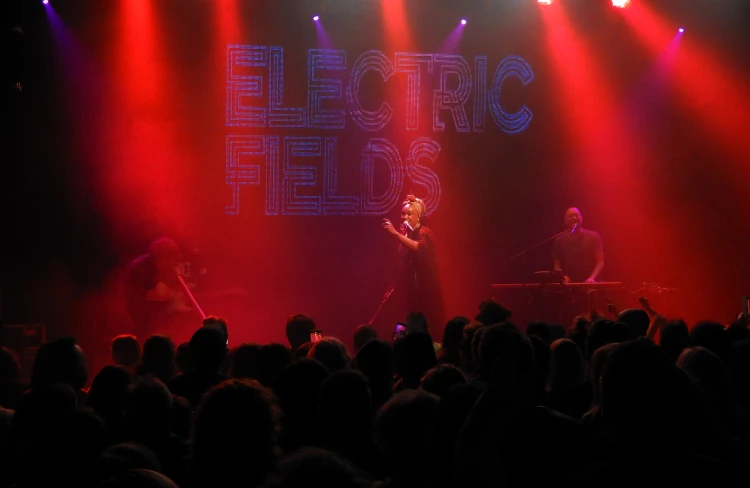
Fot. Dan Monceaux (CC BY-SA 4.0 DEED)
Portugal
Song: “Grito”
Artist: Iolanda
A song and performance that feels very outdated, this song combines a flamenco-style guitar with the singer’s wailing.
Luxembourg
Song: “Fighter”
Artist: Tali
Sung in French, this is the first time Luxembourg has competed in 31 years. The format of the song and performance follow a standard Eurovision entry, with the well-loved singer plus backup dancer combo.
Eurovision 2024: Semi-Final 2
Returning on Thursday night for the contest’s penultimate performance, this night features 16 artists looking for a spot in Saturday’s final, although only 10 will make it through.
Malta
Song: “Loop”
Artist: Sarah Bonnici
A more energetic entry that the country’s previous songs, this one relies heavily on its cliche attempt at a repetitive hook.
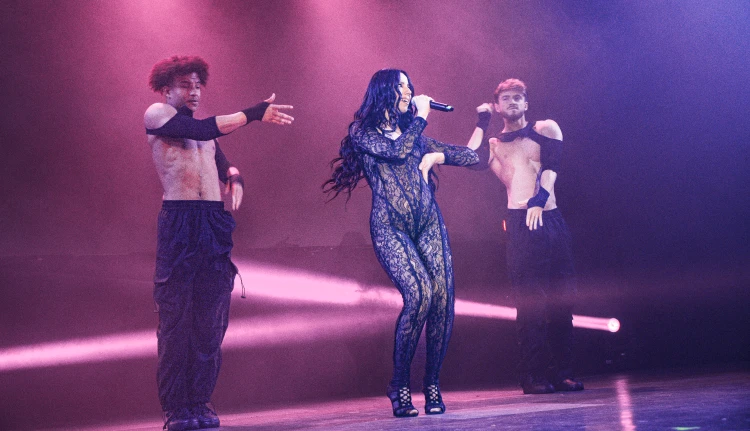
Fot. Pedro J Pacheco (CC BY-SA 4.0)
Albania
Song: “Titan”
Artist: Besa
Another entry seemingly trying to capitalise on last year’s winning song, this one features a strong chorus and “busy” stage performance.
Greece
Song: “Zari”
Artist: Marina Satti
One of the few songs this year to be certified platinum in their own country, this song features a traditional Greek intro and questionable falsetto, followed by a “modern” Greek continuation, heavily relying on its hook.
Switzerland
Song: “The Code”
Artist: Nemo
This song combines an almost cinematic music style with modern pop. The vocal styles are varied, yet perhaps lacking in overall strength. We should not that this is the bookmaker’s favourite to win the competition.
Czechia
Song: “Pedestal”
Artist: Aiko
A punk-pop styled song, with a more modern vocal performance. The catchy, guitar-heavy chorus fits well with the more relaxed verse section.
Austria
Song: “We Will Rave”
Artist: Kaleen
With a title and musical direction that is a few decades late, this song still manages to capture the overall Eurovision style in some way.
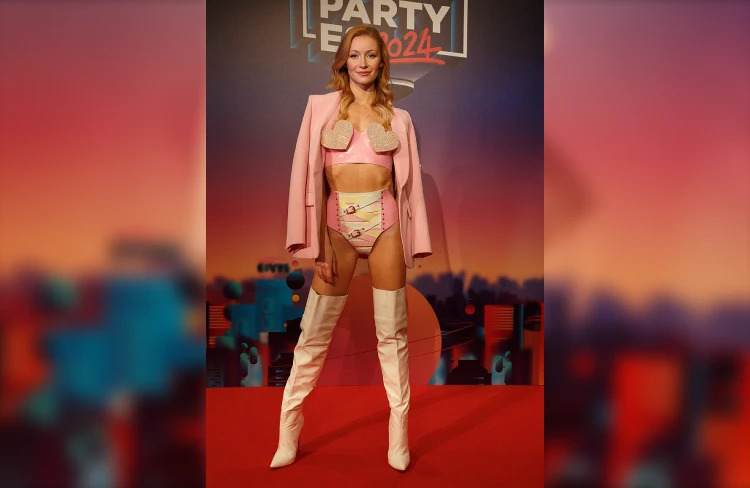
Fot. Pedro J Pacheco (CC BY-SA 4.0 DEED)
Denmark
Song: “Sand”
Artist: Saba
Perhaps this year’s best representation of “how to write a Eurovision song”, it ticks all the boxes in terms of composition, vocal style and performance, yet still seems lacking.
Armenia
Song: “Jako”
Artist: Ladaniva
Only the second song so far to combine traditional rhythms with a more modern rhythm; the attempt at originality in this entry is somewhat refreshing, although the cliche elements of the contest remain present, including the standard solo flute section combined with the artist stroking a cockerel.
Latvia
Song: Dons
Artist: “Hollow”
A standard song, following the recipe of “modern soulful music”, which seems to fall somewhat flat, although offering a well-filmed music video
San Marino
Song: “11:11”
Artist: Megara
Emulating the peculiar performance of last-year’s Finnish entry, this song combines silly outfits with an upbeat song, hoping to stand out. Although it shouldn’t serve as an indicator of the song’s quality, it has been placed as least-likely-to-win by the bookmakers.
Georgia
Song: “Firefighter”
Artist: Nutsa Buzaladze
An almost identical twin to an entry by Cyprus some year previous, this song lacks originality in full, although the performance of the artist cannot be neglected.
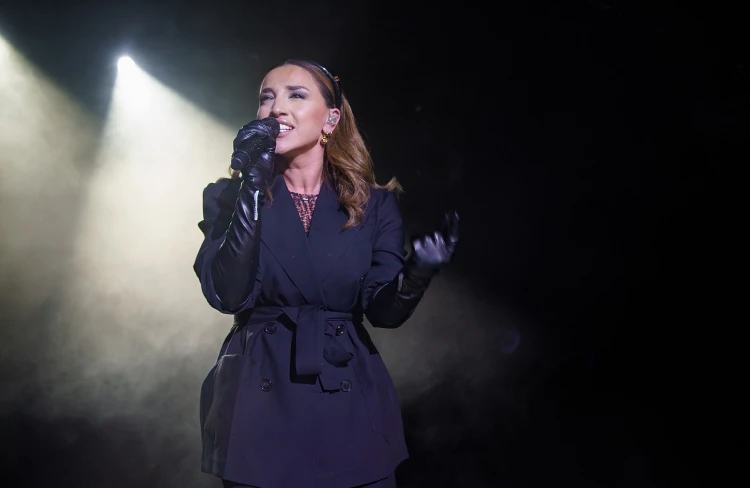
Fot. Pedro J Pacheco (CC BY-SA 4.0 DEED)
Belgium
Song: “Before the Party’s Over”
Artist: Mustii
Another “modern soulful” song, featuring a crescendo that seemingly never ends and a music video falling short of originality.
Estonia
Song: “(Nendest) narkootikumidest ei tea me (küll) midagi”
Artist: 5miinust and Puuluup
A quirky video paired with a fast-paced song and, of course – traditional instruments. The music video features a post-apocalyptic industrial set.
Israel
Song: “Hurricane”
Artist: Eden Golan
For a song with such a powerful name, it leaves one feeling that it could have given a little more oomph.
Norway
Song: “Ulveham”
Artist: Gåte
The song features a dissonance between vocals and instruments in the verse, yet comes together well in the chorus, which features a guitar-heavy thump to it.
Netherlands
Song: “Europapa”
Artist: Joost Klein
Sung in Dutch, the song attempts to mention every European nation during its 3 minute duration, with a repetitive chorus and hook.
Eurovision 2024: Final
The final will consist of 10 entries from each semi-final, the host nation, and the Big-Five countries, who all automatically qualify for the final, due to their hefty economical assistance to the overall contest.
Sweden
Song: “Unforgettable”
Artist: Marcus & Martinus
A performance by twins, which will likely be appreciated due to its novelty, yet the song seems to not offer much more than this initial novelty.
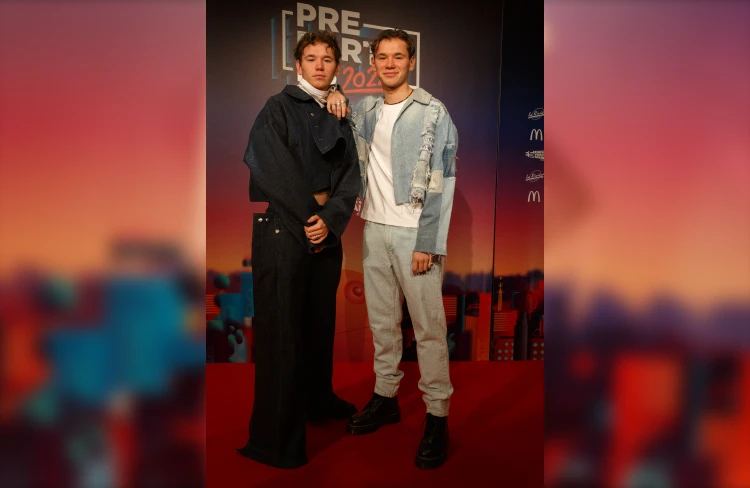
Fot. Pedro J Pacheco (CC BY-SA 4.0 DEED)
France
Song: “Mon amour”
Artist: Slimane
The song consists of mostly solo piano and crooning in French, topped-off by a shiny outfit, although the vocal performance is incredibly powerful and tastefully done.
Germany
Song: “Always on the Run”
Artist: Isaak
A very standard song, with predictable verse, chorus and hook, although it still definitely has the chance to shock us at the finals.
Italy
Song: “La noia”
Artist: Angelina Mango
A combination of rapping and singing in Italian with a modern beat, and “hairy” stage performance.
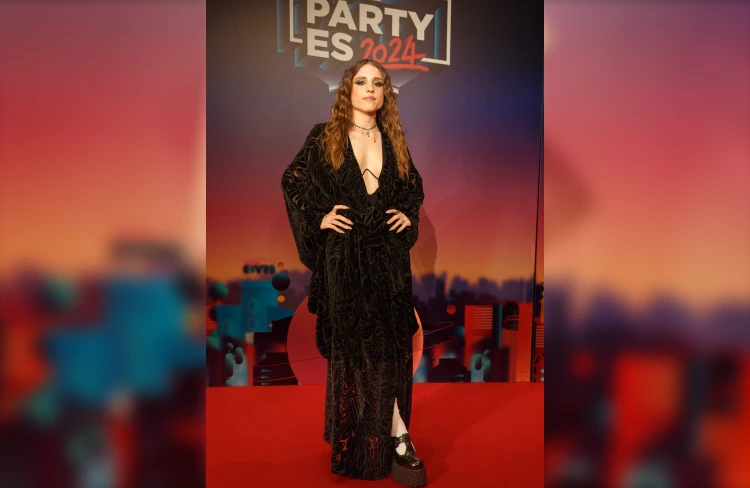
Fot. Pedro J Pacheco (CC BY-SA 4.0 DEED)
Spain
Song: “Zorra”
Artist: Nebulossa
One must commend Spain on their selection of artist for this year, who seems slightly out of place at the competition, yet still manages to pull off an interesting number, joined by cabaret dancers on stage.
United Kingdom
Song: “Dizzy”
Artist: Olly Alexander
The UK, the Eurovision’s favourite whipping boy for final place, returns this year with yet another predictable song. You never know, though, maybe this year will be different?
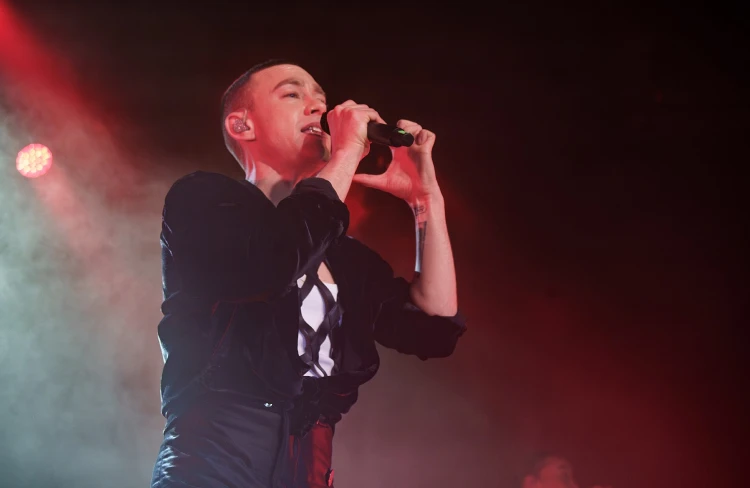
Fot. Pedro J Pacheco (CC BY-SA 4.0 DEED)
Conclusion
This is it. Another year to crown Europe’s finest song and musical performance. From the standard Europop, to the traditionally-inspired, and beyond, we have three nights of music to enjoy. Who do you think will win the Eurovision 2024? It will definitely be a close-one, who will get the most “douze points”? Hopefully it won’t leave too many disappointed. Only time will tell. If you’re planning to join the festivities in Sweden, you still have time to purchase your tickets, book a reliable transfer to Eurovision 2024, and prepare yourself for a whole week full of music, fun and love. See you there!
